 W
WBookselling is the commercial trading of books which is the retail and distribution end of the publishing process. People who engage in bookselling are called booksellers, bookpeople, bookmen, or bookwomen. The founding of libraries in 300 BC stimulated the energies of the Athenian booksellers.
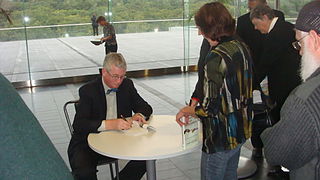 W
WBook signing is the affixing of a signature to the title page or flyleaf of a book by its author. Book signings are events, usually at a bookstore or library, where an author sits and signs books for a period.
 W
WA book town is a town or village with many used book or antiquarian book stores. These stores, as well as literary festivals, attract bibliophile tourists. Some book towns are members of the International Organisation of Book Towns.
 W
WBook trade in the United Kingdom has its roots as far back as the 14th century, however the emergence of internet booksellers such as Amazon partnered with the introduction of the e-Book has drastically altered the scope of the industry. Book retailers such as the Borders Group have failed to adjust to these changes, thus there has been a steep decline in the number of operating traditional and independent bookshops. However, still heavily influential on the trade globally, British publishers such as Penguin Books and Pearson remain dominant players within the industry and continue to publish titles globally.
 W
WJan or Joannes Cnobbaert (1590–1637) was a Flemish printer, publisher and bookseller who was active in Antwerp in the early 17th century.
 W
WMichiel Cnobbaert or Michiel Knobbaert was a Flemish printer, publisher and bookseller who was active in Antwerp in the latter half of the 17th century. His publications included devotional works, religious and polemical works and legal publications on local laws and customs in Flanders.
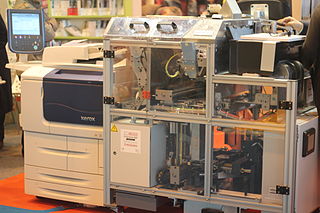 W
WThe Espresso Book Machine (EBM) is a print on demand (POD) machine created by On Demand Books. It prints, collates, covers, and binds a single book in a few minutes.
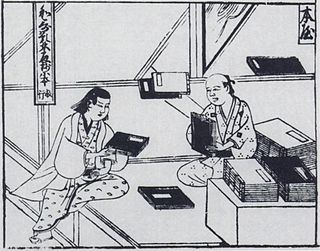 W
WThe selling of books dates back to ancient times. The founding of libraries in 300 BC stimulated the energies of the Athenian booksellers. In Rome, toward the end of the republic, it became the fashion to have a library, and Roman booksellers carried on a flourishing trade.
 W
WThe International Standard Book Number (ISBN) is a numeric commercial book identifier which is intended to be unique. Publishers purchase ISBNs from an affiliate of the International ISBN Agency.
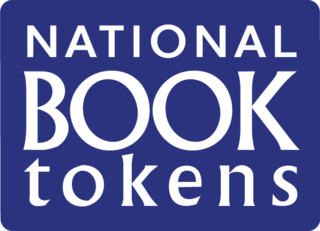 W
WNational Book Tokens are a book token that is available in the UK and Ireland. They are solely owned and issued by Book Tokens Ltd.
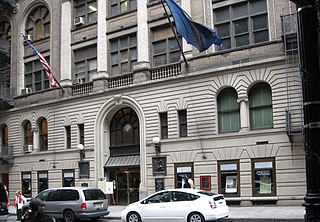 W
WThe New York Center for Independent Publishing is located on New York's "Literary Row" at 20 West 44th Street in Midtown Manhattan. Formerly the Small Press Center, the Center was founded by Whitney North Seymour, Jr. in 1984. The Center's historical seedbed as the home of independent publishing dates back to 1831, when James Harper, one of the original four Harper Brothers, joined as a member of the General Society of Mechanics and Tradesmen of the City of New York, which has housed the Center since its inception. Other early printer and publisher members include John Bishop Putnam, James J. Little and Benjamin Collins.
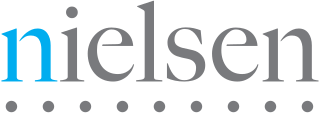 W
WNielsen BookScan is a data provider for the book publishing industry, owned by the Nielsen Company. BookScan compiles point of sale data for book sales.
 W
WAbd al-Rahim Abd al-Rahman al-Sharifi, known as Abdul Rahim al-Rahmani, was an Iraqi writer, bookman, and the founder of the first bookstore and cinema in Maysan.
 W
WA Term Catalogue, German Messkatalog, is a serial publication compiled to inform customers—most importantly book traders from other cities—of the book production as available on the book fairs. The first such catalogue was issued by Georg Willer in Augsburg in 1564. Several projects followed the model including the series of English Term Catalogues issued by John Starkey and Robert Clavell under the title Mercurius Librarius, or, a catalogue of books from 1668 to 1711. "Term" referred to the dates of the fairs that would be held as platforms of the trade.
 W
WA used book or secondhand book is a book which has been owned before by an owner other than the publisher or retailer, usually by an individual or library.
 W
WUsed bookstores buy and sell used books and out-of-print books. A range of titles is available in used bookstores, including in print and out-of-print books. Book collectors tend to frequent used book stores. Large online bookstores offer used books for sale, too. Individuals wishing to sell their used books using online bookstores agree to terms outlined by the bookstore(s): for example, paying the online bookstore(s) a predetermined commission once the books have sold.